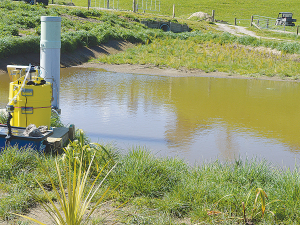Preparing for new freshwater plans
OPINION: With Freshwater Farm Plan (FWFP) regulations imminent, growers need practical, funded support now – not just more paperwork.
 The Government decision to pause the rollout of freshwater farm plans until system improvements are finalised is the right call.
The Government decision to pause the rollout of freshwater farm plans until system improvements are finalised is the right call.
OPINION: Common sense has prevailed.
The Government decision to pause the rollout of freshwater farm plans until system improvements are finalised is the right call.
The decision will be welcomed by farmers and regional councils in areas where freshwater plans have started, including parts of Waikato, Southland, the West Coast, Otago, and Manawatu-Whanganui.
The Government's view is that freshwater farm plans support farmers in managing freshwater risks, but the current system is too costly and not fit-for-purpose. However, while the Government simplifies requirements and enables more local catchment-level solutions, regional councils had been legally bound under the RMA to get farmers to comply with freshwater plans.
This left many farmers in a state of limbo, wonderig if they should get a freshwater farm plan under the current rules or wait for changes. Councils have already started implementing freshwater farm plan rules, but it makes no sense to force farmers to comply when they know the rules are about to change.
Wellington heard the concerns of the sector and Cabinet has agreed to pause the rollout of freshwater farm plans while potential changes are considered. Minor amendments to the Resource Management Act (RMA) will enable the pause.
Halting the rollout means farmers can wait for the Government to release the new rules around freshwater farm plans without having regional councils breathing down their necks.
There's no doubt that the current rules around freshwater plans are incredibly frustrating, with a lot of unnecessary cost, complexity and duplication.
It could be improved to reduce cost and complexity, and better acknowledge the environmental progress farmers are making. New freshwater farm plans must acknowledge the good work many farmers are already doing.
The key thing for farmers is to make a start and keep up their efforts - their work will not be wasted. And that makes sense.
Agrisea NZ has appointed Craig Hudson as it's new chief growth officer.
State farmer Landcorp, trading as Pamu, is a forecasting a full-year net profit of around $100 million.
Tony Aitken, chief executive of Ruralco, has been awarded the Excellence in Business Leadership Award at the ANZ Business of the Year Awards.
Global trade has been thrown into another bout of uncertainty following the overnight ruling by US Supreme Court, striking down President Donald Trump's decision to impose additional tariffs on trading partners.
Controls on the movement of fruit and vegetables in the Auckland suburb of Mt Roskill have been lifted.
Fonterra farmer shareholders and unit holders are in line for another payment in April.

OPINION: Here w go: the election date is set for November 7 and the politicians are out of the gate…
OPINION: ECan data was released a few days ago showing Canterbury farmers have made “giant strides on environmental performance”.